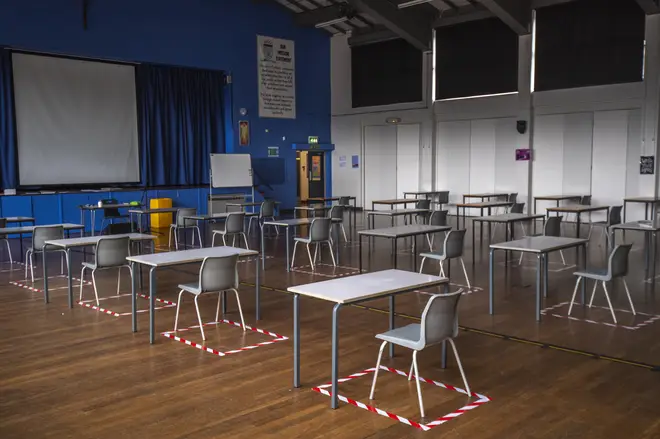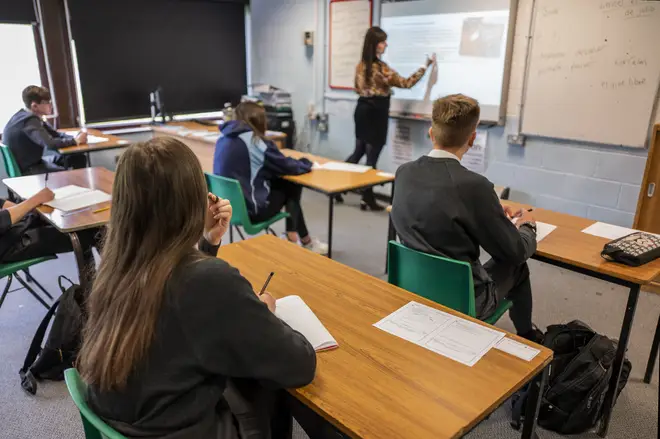
Nick Ferrari 7am - 10am
28 July 2020, 10:34

Schools and colleges have been told to offer “greater flexibility” this summer about letting pupils progress onto A-levels.
Ofqual, the exams watchdog, says schools should put "slightly less weight" on pupils getting "one or two lower grades".
It is the clearest sign yet that this year’s GCSE grades, which are being set by teachers and moderated by exam boards after formal sittings were axed, could be viewed as less trustworthy.
Schools have been advised to look at other evidence, such as a student's "potential" rather than grades alone, in deciding whether to accept them onto post-16 study courses.
Pupils can take written exams this autumn if they contest their grade, but this would be too late for A-level courses which start in September.
In a letter to headteachers, Sally Collier, Ofqual's chief regulator, said: "You may wish to consider whether you can offer greater flexibility in your admissions decisions than you would in any other year, to allow students to progress to the courses you offer.”
READ MORE: Students allowed to sit autumn exams if unhappy with teacher grades
READ MORE: GCSE and A-level exams could be pushed back in 2021

Ms Collier also warned that teachers will be investigated for potential malpractice if they tell students or parents predicted GCSE and A-level grades, or rank orders, ahead of results day.
"This is to protect the integrity of the grading process, and to avoid you and your staff being put under pressure,” she added.
“Since the final grades for some or all students in a centre could be different from those submitted, it also helps to manage students' expectations.”
Last week the exams watchdog revealed that GCSE and A-level students' results were likely to be higher this summer than previous years after schools submitted grades.
READ MORE: How GCSE and A-levels will be graded without exams this year
READ MORE: Schools will fail Ofsted if they do not offer 'full curriculum' this autumn

Ofsted chief on government back to school plans
Ofqual has predicted that overall students' results will be "better" than last year's - with an increase of 1% for GCSE across the grades and around 2% for A-level grades.
Results, to be released next month, will be based on factors including teachers' predicted grades, results in previous exams, performance of the school in previous years and how the school ranked pupils in order of how well they expected them to achieve.
Meanwhile, university applicants awaiting their A-level results are facing similar anxieties about next steps.
Oxford University has said it would apply a “degree of clemency” in accepting students who are “under-represented” there, even if they have dropped below the grades in their offer.
However, Cambridge University has rejected calls to ask schools for the predicted grades originally set by teachers if they miss their offer, despite promising to be flexible with applications.
But Nick Hillman, director of the Higher Education Policy Institute thinktank, said that students could “easily ring [institutions] and make a case for being let in based on your grades being wrong” should results day be disappointing.